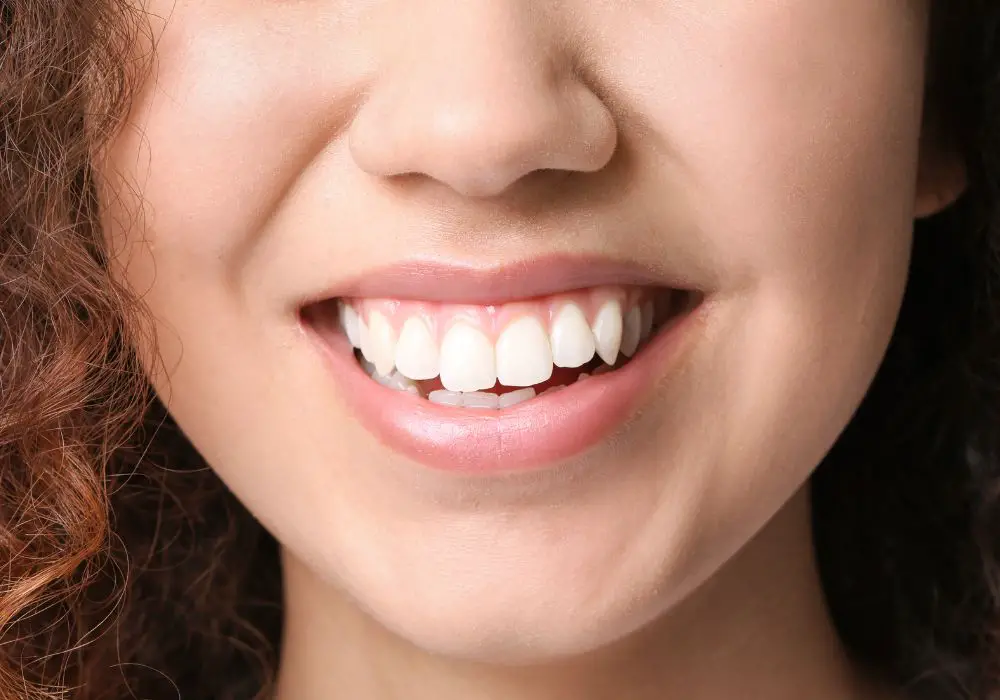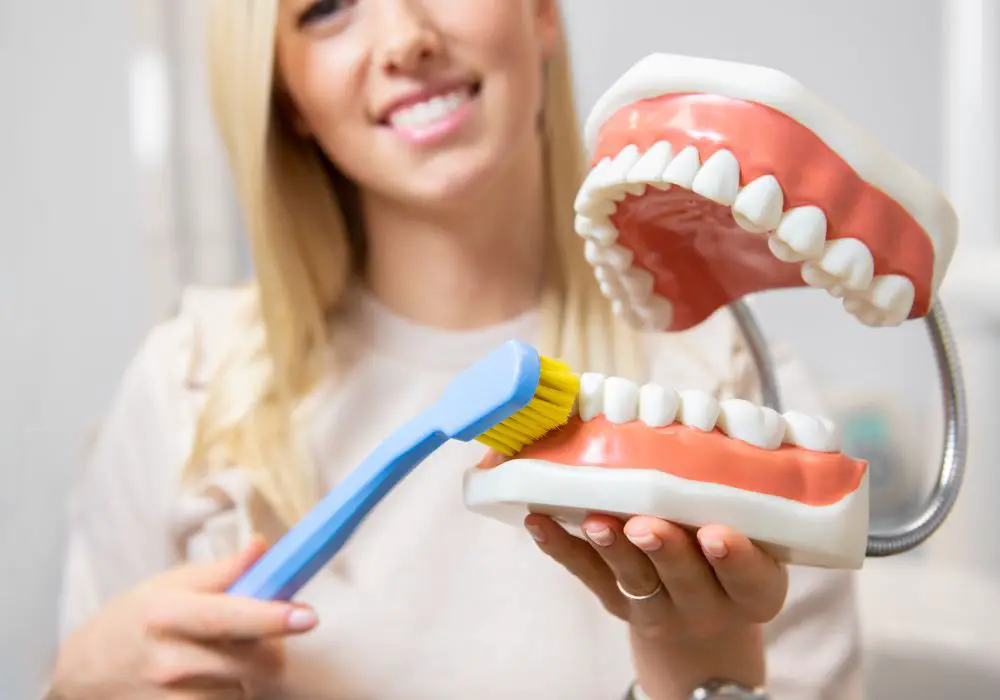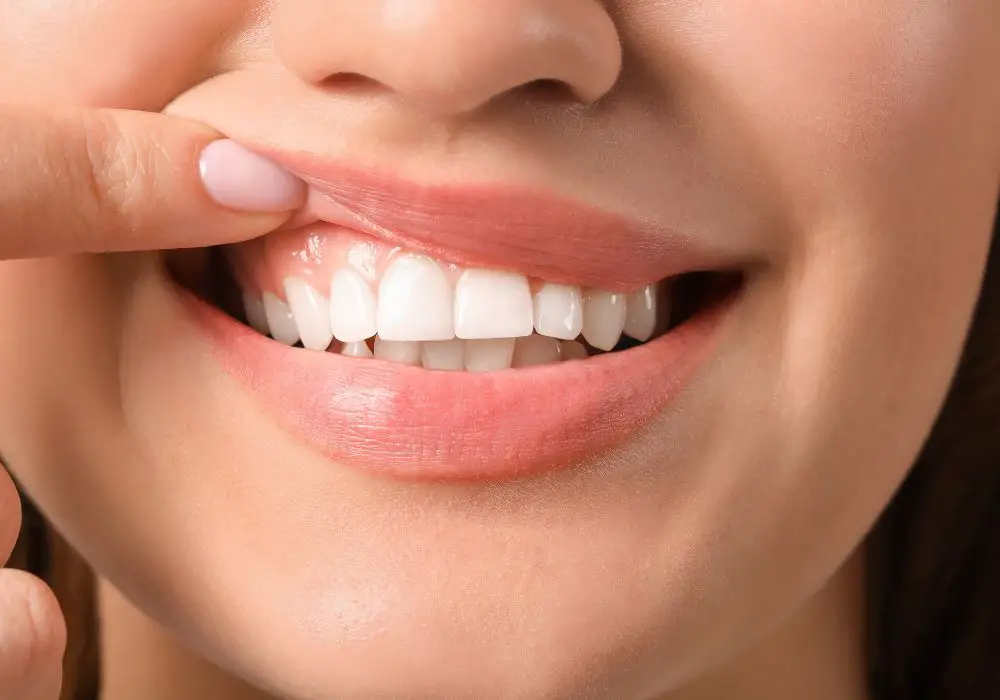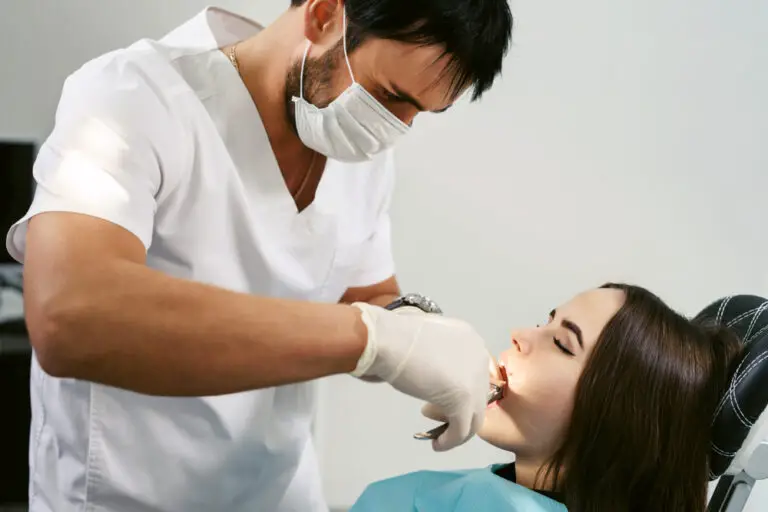If you’re looking to improve your oral health, you may be wondering how to make your teeth and gums healthy naturally. While regular brushing and flossing are essential for maintaining good oral hygiene, there are other natural remedies you can try to keep your teeth and gums healthy.
One of the most effective natural remedies for healthy gums is neem. This plant has been used for centuries in Ayurvedic medicine to treat a variety of health conditions, including gum disease. Neem has antibacterial properties that can help fight the bacteria that cause gum disease, and it also has anti-inflammatory properties that can reduce swelling and inflammation in the gums.
Another natural remedy for healthy gums is tea tree oil. This essential oil has antibacterial and anti-inflammatory properties that can help reduce gum inflammation and fight the bacteria that cause gum disease. To use tea tree oil for healthy gums, simply add a few drops to your toothpaste or mix it with a carrier oil and massage it into your gums.
Understanding the Importance of Oral Health

Maintaining good oral health is essential for your overall well-being. A healthy mouth not only helps you to eat and speak properly, but it also protects you from various health problems. In this section, we will discuss the role of teeth and gums in overall health and the consequences of neglecting oral health.
Role of Teeth and Gums in Overall Health
Your teeth and gums are not just tools for chewing and smiling; they play a significant role in your overall health. Poor oral health can lead to various health problems, including:
- Cardiovascular disease
- Respiratory infections
- Diabetes
- Dementia
- Pregnancy complications
Bacteria from the mouth can enter the bloodstream and cause inflammation and infections in other parts of the body. Therefore, it is crucial to maintain good oral health to prevent these health problems.
Consequences of Neglecting Oral Health
Neglecting oral health can have severe consequences. Poor oral hygiene can lead to:
- Tooth decay
- Gum disease
- Bad breath
- Tooth loss
Tooth decay and gum disease are the most common oral health problems. Tooth decay occurs when bacteria in the mouth produce acid that erodes the tooth enamel. Gum disease occurs when bacteria in the mouth infect the gums, causing them to become inflamed and bleed. If left untreated, gum disease can lead to tooth loss.
In conclusion, maintaining good oral health is essential for your overall well-being. It is crucial to brush and floss regularly, visit the dentist for regular check-ups, and eat a healthy diet to keep your teeth and gums healthy.
Natural Ways to Maintain Oral Health
Maintaining good oral health is essential for overall health and well-being. Here are some natural ways to keep your teeth and gums healthy:
Healthy Eating Habits
Eating a balanced diet is crucial for maintaining healthy teeth and gums. Here are some tips to help you maintain a healthy diet:
- Limit sugary and starchy foods: Sugary and starchy foods can lead to tooth decay. Try to limit your intake of sugary and starchy foods, such as candy, cookies, and chips.
- Eat more fruits and vegetables: Fruits and vegetables are rich in vitamins and minerals that are essential for healthy teeth and gums. Try to eat a variety of fruits and vegetables every day.
- Drink plenty of water: Drinking water helps to wash away food particles and bacteria that can cause tooth decay and gum disease. Aim to drink at least 8 glasses of water a day.
Proper Oral Hygiene Practices
Practicing good oral hygiene habits is essential for maintaining healthy teeth and gums. Here are some tips to help you maintain good oral hygiene:
- Brush your teeth twice a day: Brush your teeth for at least two minutes, twice a day. Use a soft-bristled toothbrush and fluoride toothpaste.
- Floss daily: Flossing helps to remove food particles and plaque from between your teeth. Use a gentle, back-and-forth motion to floss between each tooth.
- Use mouthwash: Mouthwash can help to kill bacteria and freshen your breath. Look for a mouthwash that contains fluoride and has been approved by the American Dental Association.
- Chew sugar-free gum: Chewing sugar-free gum can help to stimulate saliva production, which helps to neutralize acids in your mouth and wash away food particles.
By following these natural ways to maintain oral health, you can help to keep your teeth and gums healthy and strong.
Using Natural Remedies

If you’re looking for a natural way to keep your teeth and gums healthy, there are several remedies you can try. Here are some herbal remedies and homemade mouthwashes that may help:
Herbal Remedies
Herbs have been used for centuries to promote oral health. Some herbs that may be beneficial for your teeth and gums include:
- Neem: This herb has antibacterial properties and can help prevent gum disease.
- Clove: Clove oil has analgesic and antiseptic properties and can be used to relieve toothache and prevent cavities.
- Sage: Sage has anti-inflammatory properties and can help prevent gum disease.
- Peppermint: Peppermint has antibacterial properties and can freshen your breath.
You can find these herbs in various forms, such as essential oils, teas, and powders. You can use them in your oral hygiene routine by adding a few drops of essential oil to your toothpaste or rinsing your mouth with a tea made from the herbs.
Homemade Mouthwashes
You can also make your own mouthwash using natural ingredients. Here are a few recipes to try:
- Saltwater rinse: Mix a teaspoon of salt in a cup of warm water and rinse your mouth with it. This can help reduce inflammation and prevent infection.
- Baking soda rinse: Mix a teaspoon of baking soda in a cup of warm water and rinse your mouth with it. This can help neutralize acid in your mouth and freshen your breath.
- Apple cider vinegar rinse: Mix a tablespoon of apple cider vinegar in a cup of warm water and rinse your mouth with it. This can help kill bacteria and whiten your teeth.
Remember to always brush your teeth at least twice a day, floss regularly, and visit your dentist for professional cleanings and check-ups. Using natural remedies can be a great addition to your oral hygiene routine, but they should not be used as a substitute for proper dental care.
Lifestyle Changes for Better Oral Health
Taking care of your teeth and gums is essential for maintaining good oral health. While regular brushing and flossing are crucial, making some lifestyle changes can also help improve your oral health. Here are some lifestyle changes you can make for better oral health:
Quitting Smoking
Smoking is harmful to your oral health and can lead to a variety of dental problems, including gum disease, tooth decay, and oral cancer. Quitting smoking can significantly improve your oral health. It can also prevent staining of your teeth and bad breath. If you need help quitting smoking, talk to your doctor or a smoking cessation specialist.
Reducing Alcohol and Sugar Intake
Alcohol and sugary drinks can be harmful to your teeth and gums. Sugary drinks can lead to tooth decay, while alcohol can cause dry mouth, which can increase the risk of tooth decay and gum disease. Reducing your intake of alcohol and sugary drinks can help improve your oral health. Instead, drink plenty of water and choose healthier alternatives like milk or unsweetened tea.
Making these lifestyle changes can help improve your oral health naturally. Remember to brush your teeth twice a day, floss daily, and visit your dentist regularly for check-ups and cleanings. By taking care of your teeth and gums, you can enjoy a healthy smile for years to come.
Regular Dental Check-Ups
Regular dental check-ups are an essential part of maintaining good oral health. It is recommended that you visit your dentist at least once every six months. During these check-ups, your dentist will examine your teeth, gums, and mouth to ensure that everything is healthy and functioning properly.
A regular dental check-up typically includes a teeth cleaning by a dental hygienist, as well as a dental exam by a dentist. The dental hygienist will use special tools to remove any plaque or tartar buildup from your teeth. They will also polish your teeth to remove any surface stains.
During the dental exam, the dentist will check for any signs of tooth decay, gum disease, or other oral health issues. They may also take X-rays to get a more detailed look at your teeth and jaw.
Regular dental check-ups are important for several reasons. First, they can help prevent oral health problems from developing or getting worse. Second, they can help detect oral health problems early, when they are easier to treat. Finally, regular dental check-ups can help you maintain a healthy, beautiful smile.
If you have not had a dental check-up in a while, it is important to schedule one as soon as possible. Even if you think your teeth and gums are healthy, it is still important to have them checked by a professional. Your dentist can provide you with personalized advice on how to keep your teeth and gums healthy naturally.
Importance of Professional Dental Cleaning

Regular dental cleanings are an essential part of maintaining good oral health. Even if you brush and floss your teeth regularly, there are still areas in your mouth that are difficult to clean. Professional dental cleanings can help remove plaque and tartar buildup, which can lead to tooth decay and gum disease.
During a dental cleaning, a dental hygienist will use special tools to remove plaque and tartar from your teeth. They will also polish your teeth to remove surface stains and make your teeth look brighter. After the cleaning, your dentist will examine your teeth and gums for any signs of decay or disease.
Professional dental cleanings can also help prevent gum disease. Gum disease is a common condition that affects many people. It is caused by bacteria that build up on the teeth and gums. If left untreated, gum disease can lead to tooth loss and other serious health problems.
Regular dental cleanings can also help detect oral cancer early. Oral cancer is a serious condition that can be life-threatening if not caught early. During a dental cleaning, your dentist will examine your mouth for any signs of oral cancer.
Overall, professional dental cleanings are an important part of maintaining good oral health. They can help prevent tooth decay, gum disease, and other serious health problems. So, make sure you schedule regular dental cleanings with your dentist to keep your teeth and gums healthy.
Frequently Asked Questions
What are some natural remedies for gum disease?
There are several natural remedies that can help improve gum health. Some of these include neem, tea tree oil, and cranberry. These remedies should be added to an oral hygiene routine that also includes brushing your teeth at least twice a day, flossing often, and visiting your dentist regularly for professional cleanings and check-ups.
What are some foods that can help strengthen tooth enamel?
Foods that are rich in calcium, such as dairy products, leafy greens, and almonds, can help strengthen tooth enamel. Additionally, foods that are high in vitamin C, such as citrus fruits and strawberries, can also help promote healthy teeth and gums.
What vitamins can help promote healthy teeth?
Vitamins that are important for healthy teeth include calcium, vitamin D, and vitamin K. Calcium helps strengthen tooth enamel, while vitamin D helps the body absorb calcium. Vitamin K is important for bone health, including the bones that support the teeth.
Are there any new treatments for receding gums?
There are several new treatments for receding gums, including laser therapy and gum grafting. However, it’s important to talk to your dentist about the best treatment option for your specific case.
Can gums be repaired naturally?
While some natural remedies may help improve gum health, severe cases of gum disease may require professional treatment. It’s important to maintain good oral hygiene habits and visit your dentist regularly to prevent and treat gum disease.
How can I improve the health of my teeth and gums naturally?
In addition to maintaining good oral hygiene habits, such as brushing your teeth at least twice a day and flossing often, there are several natural ways to improve the health of your teeth and gums. These include eating a healthy diet, avoiding sugary and acidic foods and drinks, and quitting smoking. Additionally, stress can contribute to gum disease, so finding ways to manage stress, such as meditation or exercise, can also help promote healthy teeth and gums.







